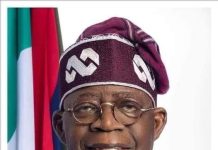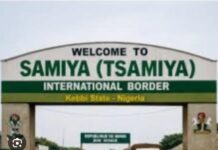
There are a number of facts out of the ancient kingdom of Idumuje Ugboko in recent times. Foremost of these is that Obi Nwoko, who became monarch in 1970’s has joined his ancestors. Another is that a new Obi has been “enthroned”. Between these two facts, a lot of controversies exist. First, it is true that the late Obi was far advanced in age. He passed at 90 years. But, had he died naturally? Or had life been snuffed out of his frail frame by usurpers to the ancient stool of Idumje Ugboko? Secondly, the so-called new Obi was installed in obscene haste and along lines contrary to longstanding customs and practices of the people. Why was it necessary to negate and subvert entrenched cultural and customary practices and rituals that have existed from primeval times?
The story out of Idumuje Ugboko is that the late Obi had retired into his private lodgings after having breakfast, only for two adult males of the royal household to move in and pay an unscheduled visit. The duo tarried with the Obi for nearly an hour, only to emerge and announce his demise to bewildered courtiers. What had happened? This question was in the lap of the princes and the traditional council of the ancient town to find an answer or answers to. But, that was precisely the point at which complications set in. To begin with, neither the Iyase (Traditional Prime Minister), Chief Chris Ogwu, nor any member of the Obi-in- Council was officially intimated of the Obi’s passing. They got to know through the whispering of sources close to the palace.
A meeting was eventually called to tie up all lose ends and prepare for the late Obi’s burial, something bound to be elaborate, giving his high standing in the society. But, rather than hold the meeting, developments became even more curious and dumbfounding. For unstated and yet-to- be determined reasons, the meeting to organizede the Obi’s rites of passage was aborted. Even more worrisome was that the late monarch was buried as the clock struck midnight on the very day of his demise.
The most astonishing development was that a successor was immediately named upon whose head an already made crown was placed! Why was it necessary to conduct in the dead of the night a coronation befitting of broad daylight, pomp and panoply? Idumuje Ugboko is, for these reasons and many more, currently in turmoil. The one who has installed himself as the new Obi of Idumje Ugboka is, if truth be told, the firstborn son of the late monarch. Given the established tradition that the first son automatically succeeds his father-king to the throne, there is, at the ordinary level, no problem with this succession, apart from its untidiness and lack of ritual concurrence.
But, there is a big question mark to this first son ever ascending the throne of his forefathers. This is because, in Idumuje Ugboko, a cardinal law exists to the effect that both parents of every Obi must hail from the town. But, significantly, the mother of the one who has usurped the throne was from Ubulu-Uku. Is it right for this foundational principle for the enthronement of an Idumuje Ugboko traditional ruler to be wantonly thrown overboard?
Denizens of the town insist that a convincing answer must be posited for this question before other equally serious matters are raised and attended to. For instance, is it not absurd and deleterious of the integrity of the town’s monarchy that the one who covets it is currently in court trying to defend himself in four different suits all to do with criminality? Again, there is the matter of insanity. Idumuje Ugboko has no stipulation of academic attainment for its traditional rulers. A stark illiterate could be elevated to the exalted office, so long as royal blood runs in his veins and the inheritance is justifiably his own. But, what does it say that the town is to have a king forced from medical studies at the University of Benin just after a session? Had he been expelled? Or rusticated? Did he willfully drop out? What was the medical reason that led to his exist?
There are many reasons why these problems have got to be sorted out. There are good reasons for Dr. Ifeanyi Okowa, the Executive Governor of Delta State, not to issue a Certificate of Recognition of Obiship to a fellow that has turned the age-old traditions of his people on its head. Idumuje Ugboko sits on the highest peak in the whole of Delta State, a veritable tourist attraction whose fortunes are bound to plummet if judicious efforts are not promptly made to reverse the impunity now surrounding the affairs of its traditional stool. Governor Okowa, despite all odds, has been valiantly grappling with the pressures of high, executive office and is widely recognized as registering appreciable success. No one has the right to compound the Delta’s crisis points by fomenting avoidable crisis in the tradition setting of Idumuje Ugboko.
Reasoned suggestions for putting a lasting end to the current crisis have been put forward by denizens of the ancient town, and by informed observers who wish Idumuje Ugboko well. They have called for a thorough inquiry into the circumstances surrounding the late Obi’s transition. They have argued that the anomaly of the king’s interment without proper traditional rites be auspiciously redressed. They are insisting that whoever must succeed the late Obi is obliged and obligated to pass all tests set down by the progenitors of the ancient kingdom, tests that hitherto have been rigorously applied. They are asking for truth, equity, justice and due process to take precedence over every other consideration. They are certain that Governor Okowa, a focused leader who is determined to establish a legacy of good governance, will find on the side of their representations.
Chief Nwabunor is a historian and traditionalist.





